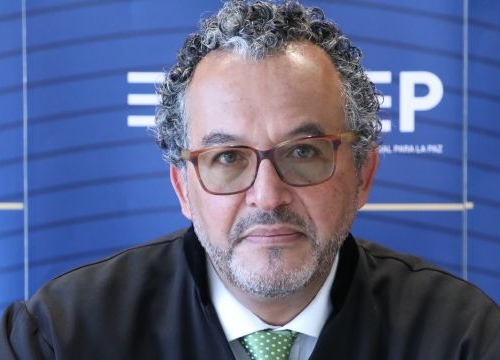Taking Stock of Five Years of Work at the Special Jurisdiction for Peace: Challenges and Achievements
Event


Special Jurisdiction for Peace
A Talk with the President of the Special Jurisdiction for Peace in Colombia Magistrate Roberto Vidal

The Special Jurisdiction for Peace (SJP) is the justice mechanism of the Comprehensive System for Truth, Justice, Reparation and Non-Repetition created by the Final Agreement for Ending the Conflict and Building a Stable and Lasting Peace between the Colombian government and the former Revolutionary Armed Forces – People´s Army.
In this discussion co-organized with the Permanent Mission of Colombia to the United Nations (UN) in Geneva, the SJP President Magistrate Roberto Vidal will take stock, after five years of intensive work and 11 macro cases, of the challenges and achievements of the jurisdiction in investigating systemic crimes, dealing with restorative sanctions, victims’ participation, and restorative justice.
Moderation
- Clara Sandoval, Professor at the Geneva Academy and at the University of Essex and Director of Programmes at the Global Survivors Fund
Talk
- Roberto Vidal, Magistrate and President of the Special Jurisdiction for Peace in Colombia
Respondent
- Gustavo Gallón Giraldo, Ambassador and Permanent Representative of Colombia to the UN in Geneva
Reception
The talk will be followed by a reception organized by the Permanent Mission of Colombia.







